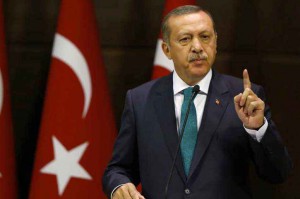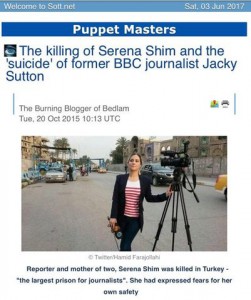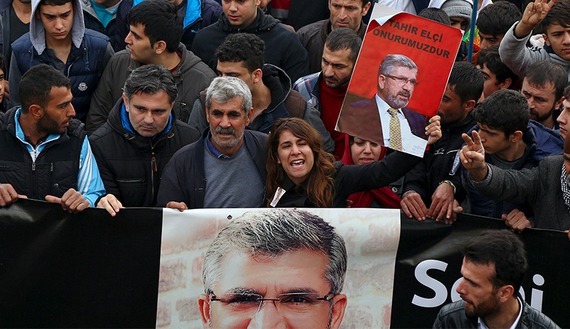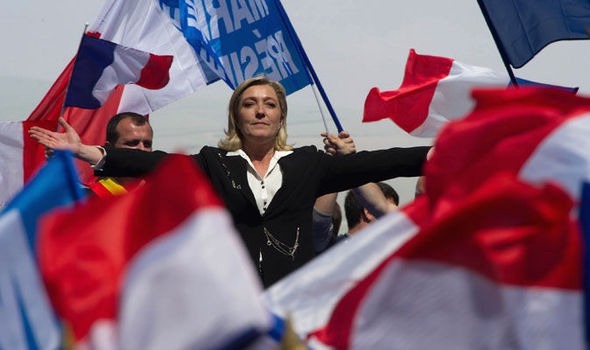The shooting of prominent Kurdish lawyer and political activist Tahir Elci, dismissed by some state voices as ‘an unfortunate accident’, was almost certainly a targeted assassination.
Shot in the head during a political event on Saturday, the Turkish people have been told the activist died accidentally in a cross-fire. Had there not been a recent history of the Turkish state violently attacking or murdering people, particularly opposition activists, that explanation might seem more credible.
Amid a wave of protests, the pro-Kurdish HDP (which gained so much popular support in this year’s original election, but then appeared to have lost most of it again in the recent replacement election) denounced the murder as a planned political assassination.
Elci was facing trial for having refused to acknowledge that the outlawed Kurdistan Worker’s Party (PKK) is a terrorist organization. Even so, Elci has been known to denounce the PKK’s use of violence and was hardly a militant. For the record, lots of countries also don’t regard the PKK as a terrorist organisation and neither does the UN.
You would think the Turkish state and intelligence agencies, having already quite clearly used staged, false-flag terrorism on its own citizens more than once recently, would back it up a little for a while, particularly with the AKP having just won its contentious majority vote and cemented its hold on power. With the ruling powers essentially having gotten what they wanted, one would expect them to go easy on domestic opposition for a while, allow for a sort of cooling off period from the tension that HDP representatives recently said could lead Turkey into a Civil War.
But no, it appears there is to be no letting up.
Just recently there was the deadliest ever attack of its kind on Turkish soil, specifically at an Ankara peace rally populated more or less exclusively by pro-Kurdish activists, pacifists and Turkey’s liberals and demanding an end to the violence between the Kurdish separatist PKK militants and the Turkish government.
The attack, rather laughably attributed to ‘ISIL‘, killed hundreds but served no obvious purpose for the Islamic State militants, but seemed to rather transparently serve the increasingly tyrannical Turkish state’s purposes far more.
The progressive, pro-Kurdish HDP party was among those in attendance, and its representatives had said in a statement that they believed their party members were the main target of the bombings.
The July terrorist incident in Suruc (again attributed to ISIL) was also directed at pro-Kurdish activists, yet the state’s subsequent anti-terror operation resulted in the arrest of 847 suspected PKK members (and yet only 137 suspected ISIL sympathizers).

It is clear that the current Turkish regime of President Erdogan is forsaking Turkish democracy for dictatorship, and, probably at the guidance of its ‘deep state’, is engaged in a domestic war against Kurdish influences, not just the PKK but moderate, progressive entities like the HDP too.
It in fact appears to be at war with the country’s progressives and liberals in general, and is, concordant to this, conducting an undisguised war against journalists and journalism.
Cumhuriyet Editor, Can Dündar, and another top editor have now been arrested on charges of espionage, this being just a week or so after the Turkish daily news outlet in question received a press freedom award. Predictably by now, the ‘espionage’ in question was an article exposing the arms shipments from Turkish intelligence to extremist rebels in Syria.
Meanwhile Ertuğrul Özkök, a reporter for Turkish daily Hüriyet, has been arrested for what is deemed as slanderous criticism of Erdogan, though apparently the offending article doesn’t even mention Erdogan by name.
Both, if found guilty on charges of spying, could possibly spend the rest of their lives in prison; the crime is simply journalism. An accusation of ‘aiding terrorism’ also gets thrown about, but is utterly laughable given the Turkish state’s long-term collusion with jihadists in Syria, including ISIL.
So all of this also brings us back to the issue of the Turkish state supplying weapons to foreign jihadists, including ISIL. This is by now one of the worst-kept secrets in the world, and the Turkish state is essentially jailing journalists for ‘revealing’ a ‘secret’ that is basically already known all over the world.
The killing of foreign journalists isn’t off-limits for this Turkish state either. Journalist, Serena Shim, a 29 year-old Lebanese-American, revealed last year that weapons were secretly being delivered to the Daesh insurgents in Syria via trucks from Turkey (and bearing the logo of the UN World Food Organization). Her tragic death came just two days after a video interview in which she claimedTurkish intelligence agents had threatened her after her report on the ISIL extremist jihadists being smuggled into Syria from Turkey. In her own words; ‘I am a bit worried because… Turkey has been labeled by Reporters Without Borders as the largest prison for journalists, so I am a bit frightened about what they might use against me.’
She continues, ‘But for the intelligence to actually look for me, that’s rather odd, so I think that they’re trying to get the word out to journalists to be careful so much as to what they say…’

Within two days of this report, Serena Shim was dead. Washington has shown zero interest in her death, despite her status as an American. The recent suicide of British activist and former journalist Jacky Sutton in an Istanbul toilet also, in the context of Turkey’s war on journalists, gives us causes for suspicion.
Reporters Without Borders has labelled Turkey the ‘world’s largest prison for journalists’.
In the supposedly democratic nation with EU membership aspirations, press freedom is pretty much non-existent now. In an atmosphere of intimidation and fear, Turkey imprisons more journalists than any other modern nation; in spite of this tight control of information, people like Serena Shim and others have nevertheless managed to expose Turkey’s criminal role in supporting the Islamic State terror group and sustaining/funding the War in Syria that has killed over a quarter-of-a-million Syrians.
For some time, hundreds of Al-Qaeda recruits have been kept in safe-houses in southern Turkey, before being smuggled over the border to conduct “jihad” in Syria. According to The Daily Telegraph, the network of hideouts was enabling ‘a steady flow of foreign fighters – including Britons – to join the country’s civil war’. In reality, even this year, hundreds of trucks a day, originating deep within NATO-member Turkey’s territory, have been crossing the Turkish-Syrian border unopposed, destined for ISIS territory, keeping the terrorist group supplied and armed, along with its ranks full of fresh fighters.
For those who might not accept the reality of the Turkish factor in Syria’s horrific crisis, even relatively recently, Turkish special forces were caught playing an active role in the Al-Qaeda-aligned Jabhat al-Nusrah’s invasion of the predominantly Armenian-Syrian town of Kessab. The Turkish High Command can therefore be regarded entirely complicit in the ethnic cleansing of Kessab.
From day one, Turkey has been the key enabler, providing a staging area for anti-Syria terrorists in the southern province of Hatay (on the Syrian border). It also served as a logistics base, offering housing, medical support, and training to would-be armed fighters, and a supply-line across the border into Syria.
The US was fully aware all along that its ally and NATO-member, the Turkish government, was enabling weapons and supplies to flow into the hands of the Al-Qaeda group, al-Nusra. Moreover, Turkey has been allowing jihadists and radicals to flood into Syria for years now. Turkey-based journalist James Ryan (Phd) emailed me a while ago to tell me about his ICC filing against Turkey and its ‘criminal gang’ in regard to Syria.
As he describes in his filing, the flow of jihadists and foreign mercenaries into Syria was not the chaotic scenario some like to think it was, but was more like an organised, orderly process; ‘The airports were full of jihadists,’ he writes, ‘in particular on flights from Istanbul to Hatay Airport’.
Shortly after Serena Shim’s mysterious death, video emerged of Turkish border police having friendly interactions with ISIL fighters.
https://www.youtube.com/watch?v=atBhAv07kLc
That Turkey has been facilitating the collapse of Syria and the growth of ISIL is by now beyond question; it is, as I said, one of the worst kept secrets in the world. Jailing journalists and murdering reporters isn’t going to keep that fact secret anymore. All it does is to more lucidly portray the Turkish state’s maneuver from secular democracy to right-wing dictatorship.
The reality is that Turkey, which for decades has sought to be a secular democracy that keeps religion at a safe distance from the affairs of government, is now being run by an increasingly dictatorial leadership that is surrounded by equally non-progressive conservatives who most likely regard the country’s secular constitution a nuisance. Control of the media and intimidation or oppression of what few journalists try to report truthfully also means that the real dangers of this state of affairs are seldom discussed honestly within state-controlled media.
In regard to Turkey, I previously wrote on this subject at more length, particularly noting the somewhat tragic element of Turkey’s crisis. Apart from possibly Lebanon, it is difficult to think of a ‘Muslim’ society as progressive, modernist and liberal as Turkey has traditionally been, particularly as it is also a democracy.
This makes Turkey a relatively unique society in the world and a positive example of how moderate Sunni Islam and modern democratic and secular government and principles can work effectively in tandem and for the good of a society.
At a time when Muslim countries elsewhere are either harsh dictatorships, nations in a state of collapse or war, or aspiring-but-failing quasi-democracies, a Turkey true to its principles would stand as something of a shining beacon of both secular democracy and the modern-day capacity for a Muslim society to exist effectively and happily in that state of secular democracy.
Also given its unique position as the literal bridge between Europe and the Middle East, such a Turkey would, in these highly toxic and increasingly sectarian times, be all the more important and valuable a society and nation with a great capacity to play peacemaker and bridge-builder.
Instead Turkey is now governed by an increasingly undemocratic, overly religious and aggressive state that is seeing the society polarise and begin to destabilise, while also engaging in illegal operations abroad and facilitating terrorism against its neighbour, Syria.
Not content with simply facilitating terrorism against its neighbor, however, the state is now apparently facilitating terror against its own citizens at home.





Another masterpiece. Thank you.
Reblogged this on HumansinShadow.wordpress.com.
Reblogged this on thewallwillfall.